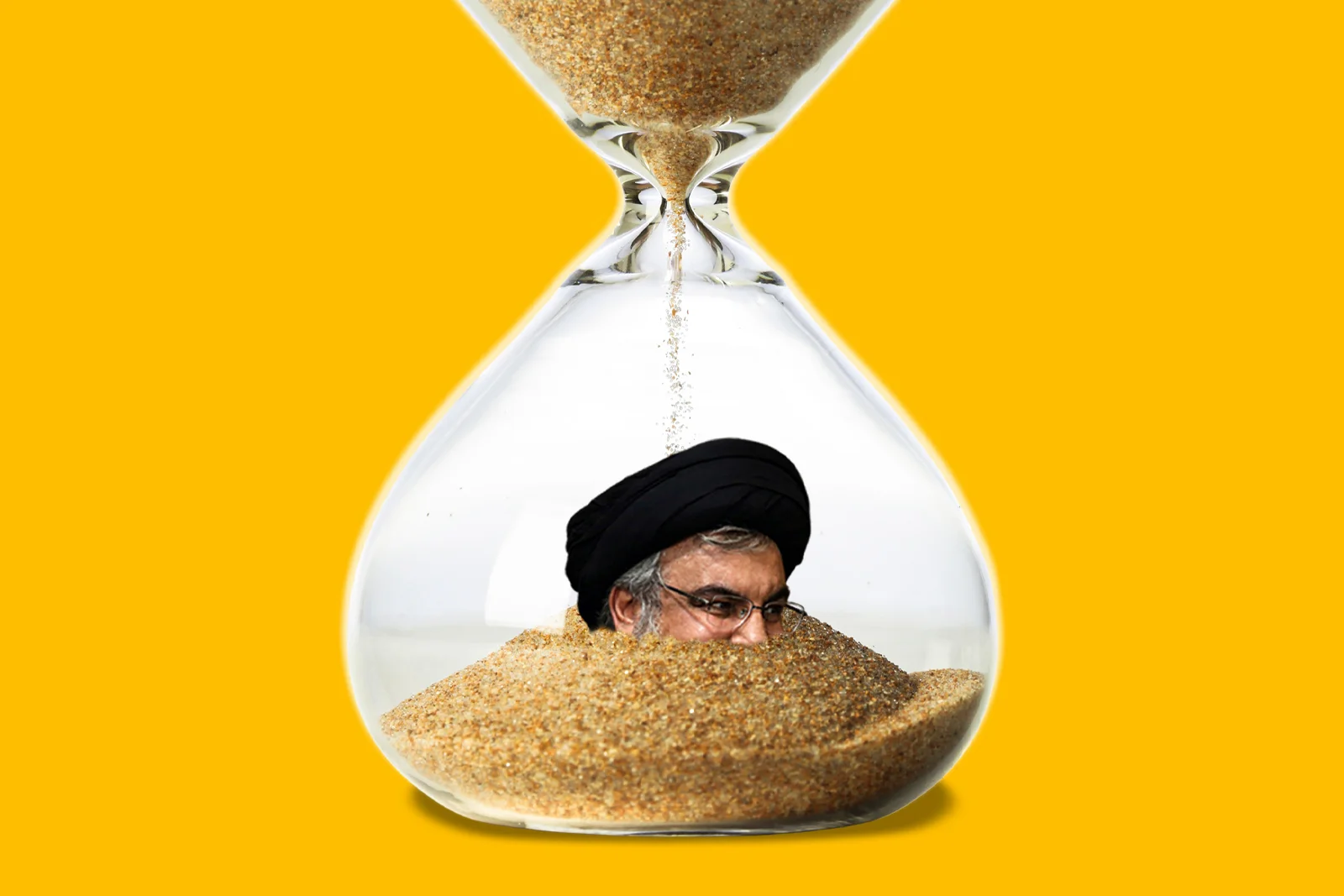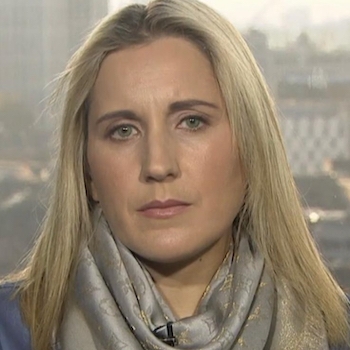
How Hamas has Avoided Hezbollah’s Fate
There is a scarcely mentioned, but critical truth in today’s Middle Eastern conflict: despite Hezbollah’s seemingly superior resources, its more advanced military apparatus, and its backing from the regime in Tehran, it is Hezbollah—not Hamas—that stands on the verge of collapse and humiliation. At first glance, this may seem perplexing.
Hamas, after all, governs only a fraction of land compared to Hezbollah, commands fewer fighters, and lacks the extensive arsenal at Hezbollah’s disposal. And yet, it is Hezbollah that now stands isolated, while Hamas not only survives but perversely thrives—largely due to its ability to manipulate sympathy and project a false narrative of resistance, purporting to fight for freedom when, in reality, it exploits this cause to mask its true agenda of control and terror.
The explanation for this apparent contradiction is not to be found on the battlefield, nor in the arsenals of these organisations, but rather in the convoluted and cynical web of regional politics. If you’re prepared to peel back the self-serving rhetoric, you will find that it is not military strength but shifting alliances and geopolitical calculations that are determining the fate of these two so-called “resistance” movements.
One of the main architects of Hezbollah’s isolation has been none other than Saudi Arabia. For years, Riyadh has been quietly and deliberately working to erode Hezbollah’s power in Lebanon, and their efforts reached a peak in November 2017 when Lebanese Prime Minister Saad Al Hariri was essentially summoned to the Saudi capital and, from there, resigned his post. The press, predictably, focused on the more lurid details of his “detention” in Riyadh. But what was largely ignored was the more significant financial subtext: Hariri’s assets in Saudi Arabia were frozen under Crown Prince Mohammed bin Salman’s self-proclaimed anti-corruption purge. These assets were then redistributed to Saudi loyalists in an effort to financially cripple Hezbollah’s influence in Lebanon.
The broader Arab world, meanwhile, has been quietly abandoning Hezbollah as well. Once lauded in the Arab street for its “resistance” to Israel, Hezbollah has now become a pariah. Why? Because of its active role in supporting Bashar al-Assad’s monstrous regime in Syria. Hezbollah’s actions in Syria—propping up a dictator whose hands are red with the blood of civilians—have earned it the justified contempt of much of the Arab world. It is worth noting that the Arab League officially labeled Hezbollah a terrorist organisation, a designation that speaks to how far the group has fallen from its days of inflated “resistance” glory.
Meanwhile, Hamas, despite being similarly loathsome, has managed to retain far more legitimacy in the eyes of the region. Unlike Hezbollah, which is viewed by many as little more than a cat’s paw for Iran, Hamas has managed to maintain a veneer of respectability. Egypt and Qatar, among others, continue to provide financial and political support, viewing Hamas as an essential component of the Palestinian cause. While Hezbollah is increasingly isolated, Hamas enjoys the luxury of being viewed as a legitimate actor in a broader geopolitical game.
This is not to say that Hamas is deserving of its relatively protected status. It is not. But the geopolitical cynicism surrounding Hamas is undeniable. Some Arab states, notably Qatar and Egypt, see value in Hamas’ survival, if only to use the group as a bargaining chip in their own regional power plays. In this sense, Hamas is a tool of convenience, something to be used, not admired.
Hezbollah, on the other hand, has become an expendable liability. No Arab state, save for its Iranian patrons, sees any value in its continued existence. In fact, most Arab leaders would quietly welcome its demise. The once-vaunted “resistance” narrative has worn thin, and Hezbollah’s status as an agent of chaos in an already fragile region has made it a burden that no one wants to carry.
The consequences of this geopolitical isolation have been severe. Hezbollah, once a dominant force in Lebanon, now finds itself presiding over a country that is crumbling under the weight of economic collapse. The Saudi-led campaign to cut off Lebanon’s financial lifeline has left the country destitute, and Hezbollah, which controls much of the political landscape, is increasingly unable to govern. As Lebanon sinks further into the abyss, Hezbollah’s only remaining patron is Iran—a nation itself grappling with crippling sanctions and internal dissent.
Hassan Nasrallah, Hezbollah’s now-former leader, found himself desperately trying to maintain his grip on power as his support base dwindled. The Lebanese people, who once may have seen Hezbollah as a protector, are now disillusioned, watching as their country descends into ruin. At the same time, Hezbollah’s dwindling leadership prioritises its allegiance to Tehran over the welfare of its own people. Desperation breeds opportunity, and for foreign intelligence agencies, Hezbollah’s internal decay provides fertile ground for recruitment. Starving men are easily bought, and when people cannot feed their families, loyalty becomes a negotiable commodity.
What is perhaps most striking about Hezbollah’s current predicament is the reaction from the broader Arab world. For the first time in modern history, Arabs from across the region—from Saudis to Egyptians to Syrians—are celebrating Hezbollah’s humiliation. Social media has become a forum for mocking Nasrallah, and even Hezbollah’s most vocal apologists are finding it difficult to rally sympathy for the group. The once-prevailing narrative that criticised any support for Israel is now being turned on its head. For the first time, many Arabs are less concerned about Israel than they are about Hezbollah, and they are not shy about saying so.
The irony here is palpable. Hezbollah’s downfall is being cheered not just in Tel Aviv but also in Riyadh, Cairo, and beyond. The narrative that once positioned Hezbollah as the champion of resistance against Israel has collapsed under the weight of its own hypocrisy and brutality.
It is critical to recognise that both Hezbollah and Hamas, despite their rhetoric, care little for the people they claim to protect. Both groups, while claiming to be resistance movements, are far more interested in consolidating their own power than in defending the populations they hold hostage. Hezbollah’s relentless bombardment of Israel since October 8, under the guise of defending Hamas, is nothing more than a cynical attempt to further Tehran’s interests in the region.
Neither group has any genuine concern for the Palestinian cause. Hamas is content to rule Gaza with an iron fist, and Hezbollah would readily sacrifice the Lebanese people to preserve its own power and serve the interests of Iran. They are, at their core, mirror images of each other—ruthless organisations that hold their own populations in contempt, while pretending to act as their saviours.
The fall of Hezbollah would be more than a mere victory over a terrorist organisation. It would be a severe blow to Iran and its ambitions in the region. Hezbollah has long been an extension of the Islamic Republic’s influence, and its destruction would fundamentally weaken Tehran’s grip on Lebanon. For the first time in recent history, Arab states and Israel find themselves aligned in this quiet campaign to undermine Hezbollah, and the region as a whole is preparing for a post-Hezbollah future.
The demise of Hezbollah, which has been quickened by Israel targeting much of its leadership, will undoubtedly be a watershed moment for the Middle East. It will mark not just the end of Iranian proxy dominance in Lebanon, but also the beginning of a new regional realignment—one where Hezbollah’s fall will be celebrated not only by its historical adversaries, but by those who have long watched silently, weary of its brutal reign of terror and subjugation. This shift signals a unique moment in the region’s political landscape, where even Arab states, once ambivalent or outright hostile to Israel, are now tacitly aligned in the desire to see Hezbollah’s downfall.
But as this transformation unfolds, a crucial question remains: Where will the West stand in this new era? Will it, as it ought to, throw its weight behind Israel, acknowledging the strategic and moral imperatives of supporting the only democracy in the region? Or will it, in typical fashion, choose to sit on the sidelines, sending a message of indifference to a Middle East that is watching closely—this time, for all the right reasons?

